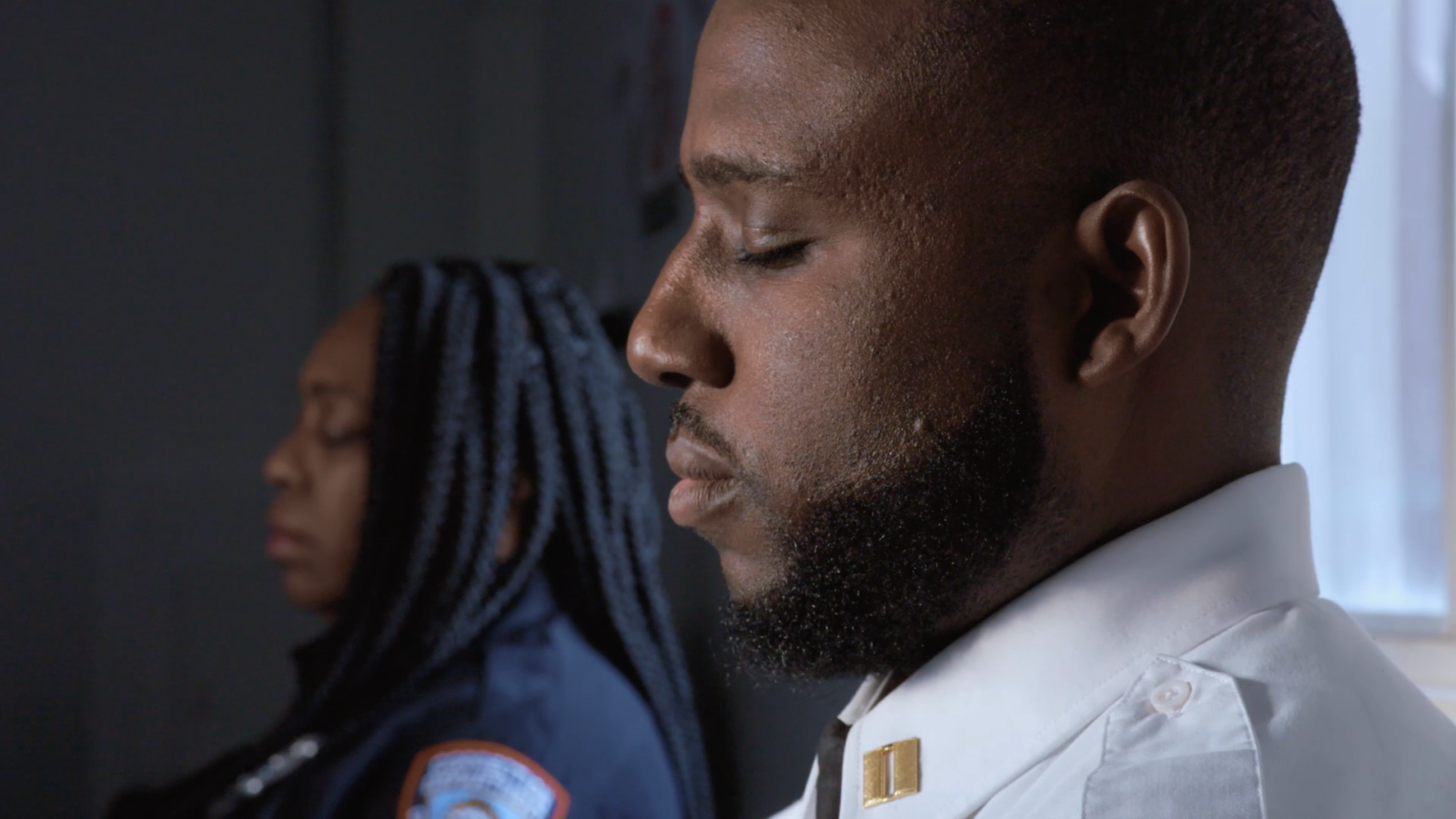Capt. Sardou Augustine, a correctional officer at New York’s Rikers Island and father of two young girls, worked himself to the brink of exhaustion. Relentless stress from long hours in a maximum-security setting triggered excruciating cluster headaches that he describes as “like needles behind my eyes.” He was giving all his energy to his job and his family, and had nothing left for himself. But through the simple practice of meditation, he learns how to slow down, tap into what he needs, and gains perspective on his own tensions and feelings.
Capt. Augustine’s story is told in the short film, Finding Your Silence as part of TakeCare, a national initiative that uses short films to inspire people to take care of their health and well-being through small, simple steps. His story is an excellent example of the power that a mindfulness practice provides for improving health and managing stress — even in the most stressful or even dangerous environments.
Why Meditation and Mindfulness Help
Capt. Augustine says he and many of his fellow officers feel anxiety even as they cross the bridge to the prison at Rikers Island, which houses some of New York’s most dangerous criminals. “I think it’s the fear of the day, not knowing what your day is going to be,” he says in the film, which notes that correctional officers suffer high rates of substance abuse and heart attacks, with lower life expectancies.
Daily meditation teaches Capt. Augustine how to separate himself from his body’s natural stress reaction. “If it gets real, real bad, I think one of the biggest things is silence,” he says. “That helps me clear out a lot of things. When you meditate and you relax the mind, you kind of just deal with the stresses that are outside. You kind of put things into perspective.”
We tend to over-identify with changing conditions in our bodies and minds. If we are feeling constantly angry and stressed, we get wrapped up in those emotions. The tension builds in our bodies and our minds. Meditation helps by allowing us to become observers, to change our relationships with those things that stress us and our reactions to them. From the position of observing stress and our reaction to it, we can make better responses that reduce the power of stress to dominate our lives.
Physical Activity and Meditation
Before he incorporates meditation into his daily life, Capt. Augustine relied on what he calls his “let outs” — playing basketball, lifting weights, and running. Physical activities are not the only answer to release stress. In the film, Capt. Augustine says when he meditates, his “mind relaxes.” When we take a moment to breathe, our mind can better observe the worry and negative narrative. For a healthy mind and body, we need both the physical and mental release.
Understand the Goals of Meditation Practice
The secret to a successful meditation practice is first to understand the goal. Meditation is not about creating anything or becoming something else. It is about recognizing and resting in what you already have — the capacity for being aware of what is happening here and now. Resting in awareness allows the mind (and usually the body) to relax, to find a place of stillness and peace. This position of awareness also allows you to know more accurately what is happening in the present moment — inside you and around you — and thus nurtures greater understanding, which guides wise actions. So, you could say — in brief — that the goals of mindfulness meditation are finding peace and stillness within, by taking the position of awareness, and learning how to act with more understanding and compassion for yourself and others.
An Informal Mindfulness Practice: Noticing
Mindfulness doesn’t have to wait for a scheduled formal session. It can be practiced at any moment in the day. By taking one or two breaths, try bringing your attention to where you are at any point in your day. Notice the feeling of the muscles in your legs and any other sensations as you walk or stand up from a chair. Take a moment to fully notice the breeze on your skin as you walk outside and the feeling of the air moving in and out of your body as you breathe. At any point in your day, take a deep breath and, without judgement, become aware of where you are, what you hear, see, and feel, and how you are reacting to the world. Then, allow your expanded awareness of what is happening to guide you wisely in your next words and actions, moment by moment.
Jeff Brantley, MD, served as an advisor on the film, “Finding Your Silence,” as a part of The Healthy US Collaborative’s TakeCare Campaign. Dr. Brantley teaches mindfulness based stressed reduction and is a founder of Duke Integrative Medicine.


